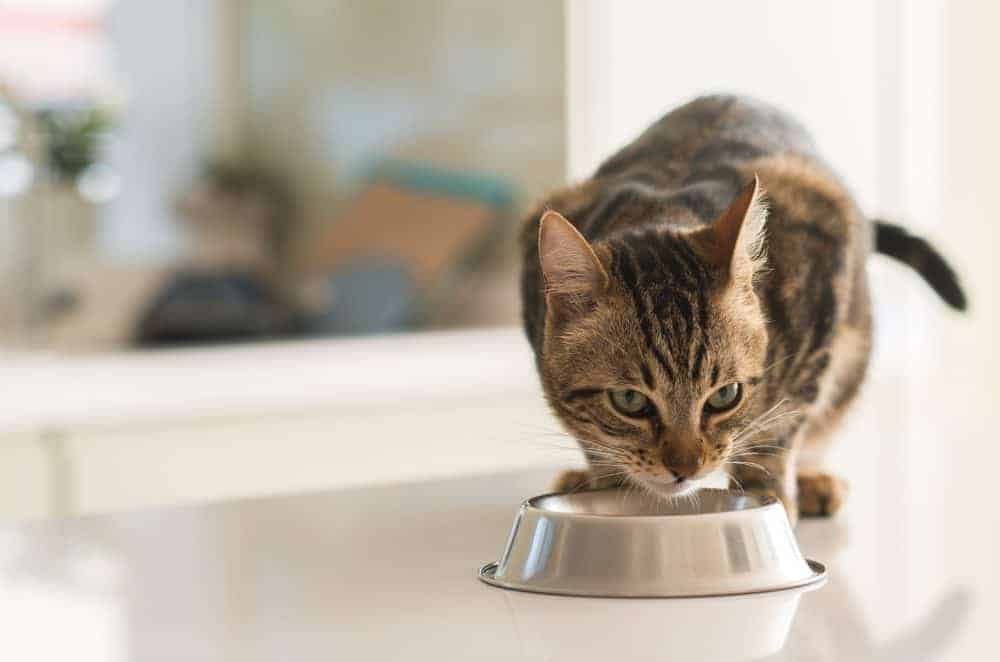
Chocolate, cheese and leftover takeaways are just a taste of what some owners regularly feed their pet cats. Reported in The Independent, a study of 2,000 cat owners revealed that a fifth of owners don’t even know that their cats are carnivores – with one in 10 feeding them raw vegetables and one in 20 serving up salad leaves.
The Telegraph recently uncovered another worrying trend – cat owners feeding their pets a vegan diet. While canines, in theory, can survive on a carefully planned vegetarian diet as they are omnivores, this is not the case for felines who have complex and specialised nutrition requirements.
Cats are obligate carnivores, which means their nutritional requirements can only be met with a diet based on animal tissue – feeding a plant-based diet is likely to make them seriously ill.
Cat digestion facts
- Cats have a very specialised digestion, with a small intestine that is only about three times the length of the body.
- Their stomach secretes digestive juices that act primarily on meat.
- As strict carnivores, cats have high protein requirements and their metabolisms appear unable to synthesize essential nutrients such as retinol (Vitamin A), arginine (an amino acid), taurine (an organic compound widely distributed in animal tissues), and arachidonic acid (a polyunsaturated omega-6 fatty acid).
- In order to get these essential nutrients, a cat has to eat meat.
Deficiencies and health problems
Cats who are fed a meat-free diet will quickly develop a taurine deficiency, which can lead to widespread health problems, including retinal degeneration which can lead to blindness and heart issues. They will also run low on other essential amino acids, such as methionine and cysteine, which can lead to poor growth and nose and mouth problems, along with vitamin deficiencies that can result in liver failure and stomach issues.
The British Veterinary Association states: “We wouldn't recommend a vegan diet for cats. Being obligate carnivores, they require animal-sourced nutrients. Owners should always consult their vet before making any changes to their pet’s diet to avoid nutritional deficiencies.”
Of course, these problems can be avoided by feeding your cat a complete food that has been created with a carefully balanced mix of ingredients that meets all their nutrition requirements. And, if you have any concerns about your cat’s nutrition, always ask your vet for advice.
Quality food for top cats
At Burgess, all our cat foods are made using premium ingredients to ensure excellent quality and superior taste to help keep your cat happy and healthy – from kitten, to adult and mature.
What’s in our recipe?
- Advanced Protein – High in British protein for natural carnivores
- Heart Health – Taurine helps support a healthy heart
- Skin & Coat – Omega fatty acids support healthy skin and a glossy coat
- Digestive Comfort – Natural prebiotics support beneficial gut bacteria
- Immune Protection – Natural antioxidants support your cat’s immune system
- Dental Defence Technology – To reduce plaque formation and support healthy teeth and gums
Why not take a closer look at our cat food range here
If you found this interesting, you may also like:
Why you should let your cat puzzle it out
Feeding time should be more than just dishing out a bowlful of food. It’s time to let our felines work for their dinner. Here’s why...
Long live cats
What can you do to help your cat enjoy a happy, healthy and long, long life? Start by following our 12 top tips...
Sources: independent.co.uk, telegraph.co.uk, bbc.co.uk, britannica.com, cattime.com














